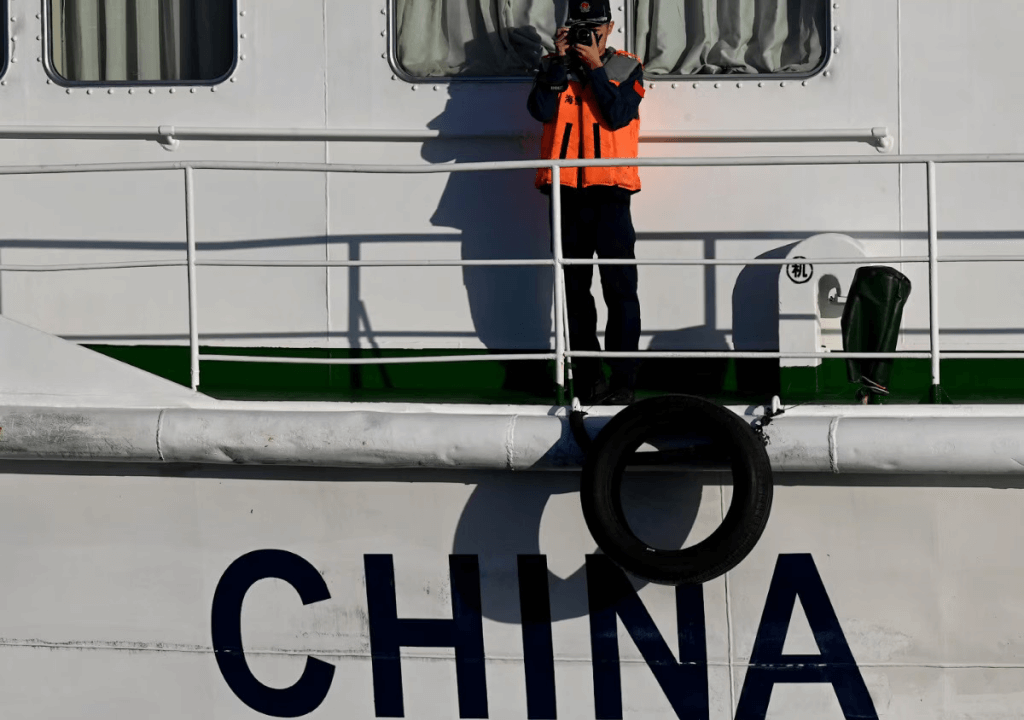The politics of the South China Sea are interesting to observe because we often witness numerous measures that appear to escalate towards war, only for tensions to suddenly diminish. This has been a frequent occurrence since the 2010s, during which China has re-emerged as a political and economic superpower. China harbors strong desires for control over Taiwan and the entire South China Sea but clearly fears direct conflict with the United States. Consequently, China introduces measures or claims to assert authority in these disputed areas, even though it cannot effectively implement or enforce them, merely to maintain its claims.
However, the recent trespass laws, which allow foreigners accused of illegally entering Chinese waters to be detained for up to 60 days without trial, mark a further escalation in tensions in this fiercely contested waterway. The term “Chinese Water” is confusing. China’s Coast Guard Law, introduced in 2021 and serving as the basis for current regulations, applies to “maritime areas under Chinese jurisdiction” but lacks a clear definition. Maritime areas typically refer to the shores and economic zones of the country, but according to China, they encompass the entire South China Sea and the waters around Taiwan. This ambiguity creates significant confusion and tensions among neighboring countries and their fishing communities.
As the law came into effect on Saturday, the neighboring Philippines, which strictly opposes China’s claim on the South China Sea, has stepped up patrols in the region ahead of the rollout of a new Chinese regulation empowering its coast guard to detain foreigners accused of trespassing. Philippine President Ferdinand Marcos Jr. has previously characterized the new Chinese regulations as concerning and an escalation of the situation. He has also stated that any deliberate killing of a Filipino citizen would be very close to “An Act of War”. There will be no doubts about that. Already, there are concerns that as maritime confrontations near the shores of the Philippines increase, so does the risk of a miscalculation that could inadvertently provoke conflict. There have been reports of Philippine vessels being humiliated by water cannons from the Chinese coast guard. Representatives of fishing groups, who are likely to be most affected by the recent regulation, have told Philippine media this week that they fear being detained at sea but have no option but to continue, as their livelihoods depend on it. This situation puts pressure on the Philippine government to enhance security measures in their waters. Other countries around the South China Sea are also observing the situation to understand China’s intentions behind the law.
Even though there is much tension, the South China Sea remains devoid of disastrous war primarily due to the political stalemate unfolding in the region. China, the superpower seeking control over the entire region under Beijing’s authority, finds itself deadlocked by counter moves from the United States, which have strengthened neighboring countries along the coasts of the China Seas such as Japan, South Korea, Taiwan, and the Philippines. Countries like Indonesia and Vietnam, remaining neutral, would lean towards the US if a conflict were to arise. Incidents such as firing water cannons at Philippine vessels have prompted warnings from the US, which has affirmed it would defend the Philippines, a treaty ally, in the event of an armed attack on its public vessels, aircraft, armed forces, or Coast Guard in the South China Sea. Therefore, a full-scale war would ultimately be detrimental to China, a fact acknowledged by China itself. Thus, China attempts to maintain its objectives through laws and unsupported claims.
As neighboring countries protest the trespass law, China’s foreign ministry spokesperson, Mao Ning, has stated that the trespass laws are intended “To standardize the administrative law-enforcement procedures of Coast Guard agencies and better uphold order at sea”, and reassured that “Individuals and entities have no need for concern as long as they have not done anything illicit”. However, they have not defined what constitutes illicit.
Even though the chance of a full-scale war remains low in the current situation, it is certain that the new trespass law will open up a “Lawfare”. The implementation of the new law could also prompt the Philippines to advance its own legal challenges against China. The Philippines has previously indicated it is considering filing a new legal challenge against China in the Permanent Court of Arbitration in The Hague, accusing it of environmental damage within the Philippine’s exclusive economic zone, the waters that stretch for 200 nautical miles (370 km) from a state’s coastline, where a country has special rights to exploit resources and build. Though From the Chinese perspective, the trespass laws are expected to maintain China’s aspirations alive.








